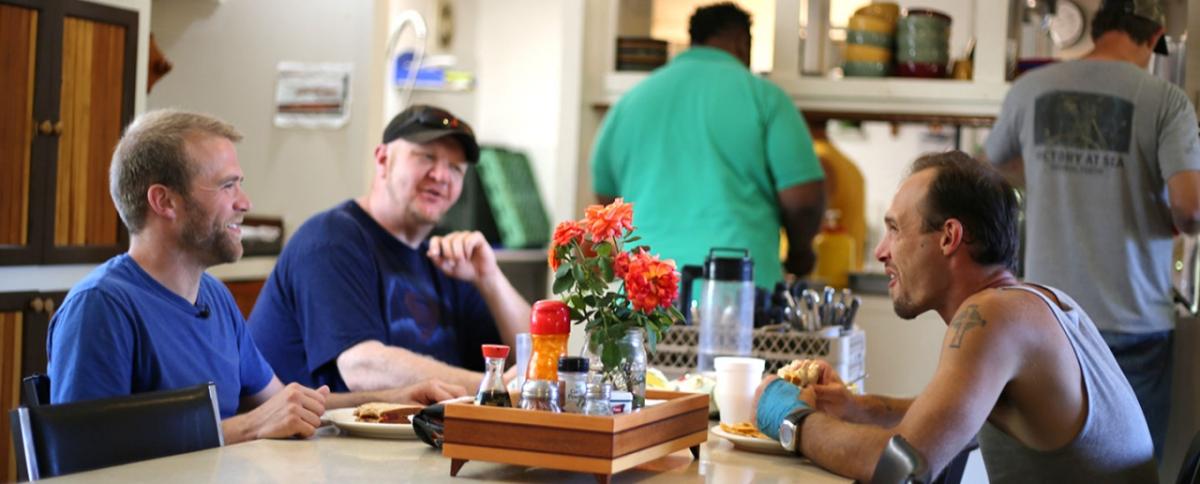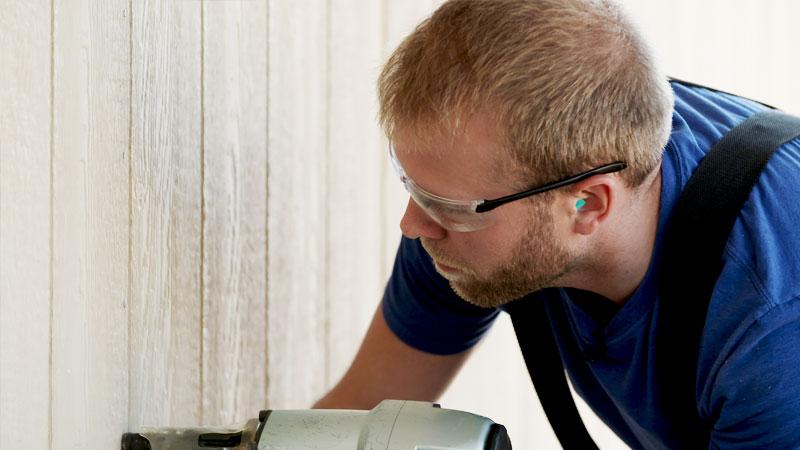Where Some Go When There Is No Place to Go
Men struggling with addiction are finding refuge at the Blanchet House, a nonprofit in Portland, Oregon, that vows it will ‘never give up’ on them.
When family tragedies became too much to bear, Dennis Arnold numbed the pain with drugs. This led to addiction, and eventually, homelessness. But the Blanchet House helped him turn his life around. See the video at Wells Fargo Stories: https://stories.wf.com/where-some-go-when-there
It has been six years since Arnold got sober. Today, he is the food services and building manager for the Portland, Oregon, nonprofit. He is also going to school to teach English as a foreign language.
“How do you thank someone for saving your life?” Arnold said. “It just comes down to that. They saved my life, and I will be forever grateful.”
Blanchet House provides 350,000 meals a year, six days a week, for people in need. It also serves about 150-200 men a year who are struggling with addictions, unemployment, mental health, and family issues, said Executive Director Gregory Baker. Blanchet House provides case management, transitional housing, and opportunities for the men to volunteer — either by serving food to the public at the nonprofit’s downtown Founders’ Cafe or by maintaining the Blanchet Farm 38 miles away and learning woodworking. Once the seven- or nine-month residential program ends, Baker said, many of the men find jobs.
“If you come to the Blanchet House, you’re not going to be judged,” Baker said. “You’re not going to be looked down upon. No one’s going to tell you that, for whatever your past sins, it’s going to be held over your head. Respect and dignity is what you will experience at this agency. We greet our guests with open arms. We show love, care, and help them go through the transformative process to get healthier and better. We never give up on any of our guests. That’s our mission.”
‘We cannot do our work without the volunteers’
Wells Fargo recently awarded the nonprofit a $5,000 Volunteer Service Award to support its programs and services on behalf of Jose Vithayathil, a Wells Fargo data integrity manager in Portland. The award recognizes Wells Fargo team members for outstanding volunteer contributions. Vithayathil, who helped start Wells Fargo’s volunteer chapter in the Oregon region, has been volunteering with the Blanchet House for three years.
“I wanted the chapter to align themselves with a nonprofit that really helped out the communities,” Vithayathil said. “Blanchet House helps address the homeless crisis that we’re going through here in Portland and in Oregon in general.”
Vithayathil is one of about 15-25 team members who volunteer once a month to help serve meals and support Blanchet House events, Baker said. “That’s a significant contribution,” he added. “We cannot do our work without the volunteers, such as the ones from Wells Fargo, to help us carry out our mission.”
‘I have stability’
That mission allows the nonprofit to help people who have struggled in the past, like Arnold, or who are still struggling. “We support Dennis 100 percent because he’s the kind of guy that can come through Blanchet House, start at the low end, actually rise, and be an example for others,” Baker said.
Like others whom the Blanchet House has served, Arnold came to the nonprofit to have a meal. Once there, he asked about the housing program and entered soon after.
“When I was having a real tough time,” Arnold said, “they gave me a place to stay. They gave me a meal to eat. I came up through the program, I got clean and sober, and eventually worked my way up to a staff position within the program, and ultimately I was hired as an employee. Now that I’m an employee, it’s enabled me to solidify my sobriety. I have my own apartment now, which I haven’t had in quite a while.”
Arnold is also going to school part time, spending his nights after work either attending classes or working on homework to earn a degree in English.
He is still sometimes shocked at how much his life has changed, he said, and he is thankful.
“What I love about my new life is that I have stability,” Arnold said. “I know where I’m going to lay my head at night. I have a bed to sleep in, instead of a sidewalk, and I have my sobriety. The fact that I’m not dependent on anything — any drugs or chemicals, I’m free of all of that — that is what I am so grateful for. That’s what I love about my life. It’s just clean.”



